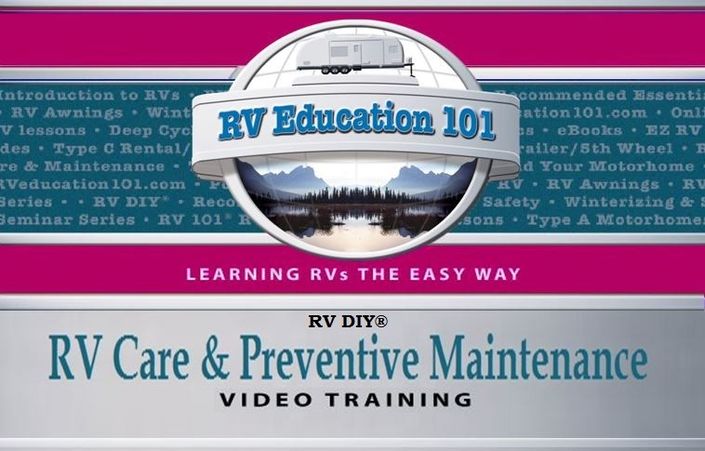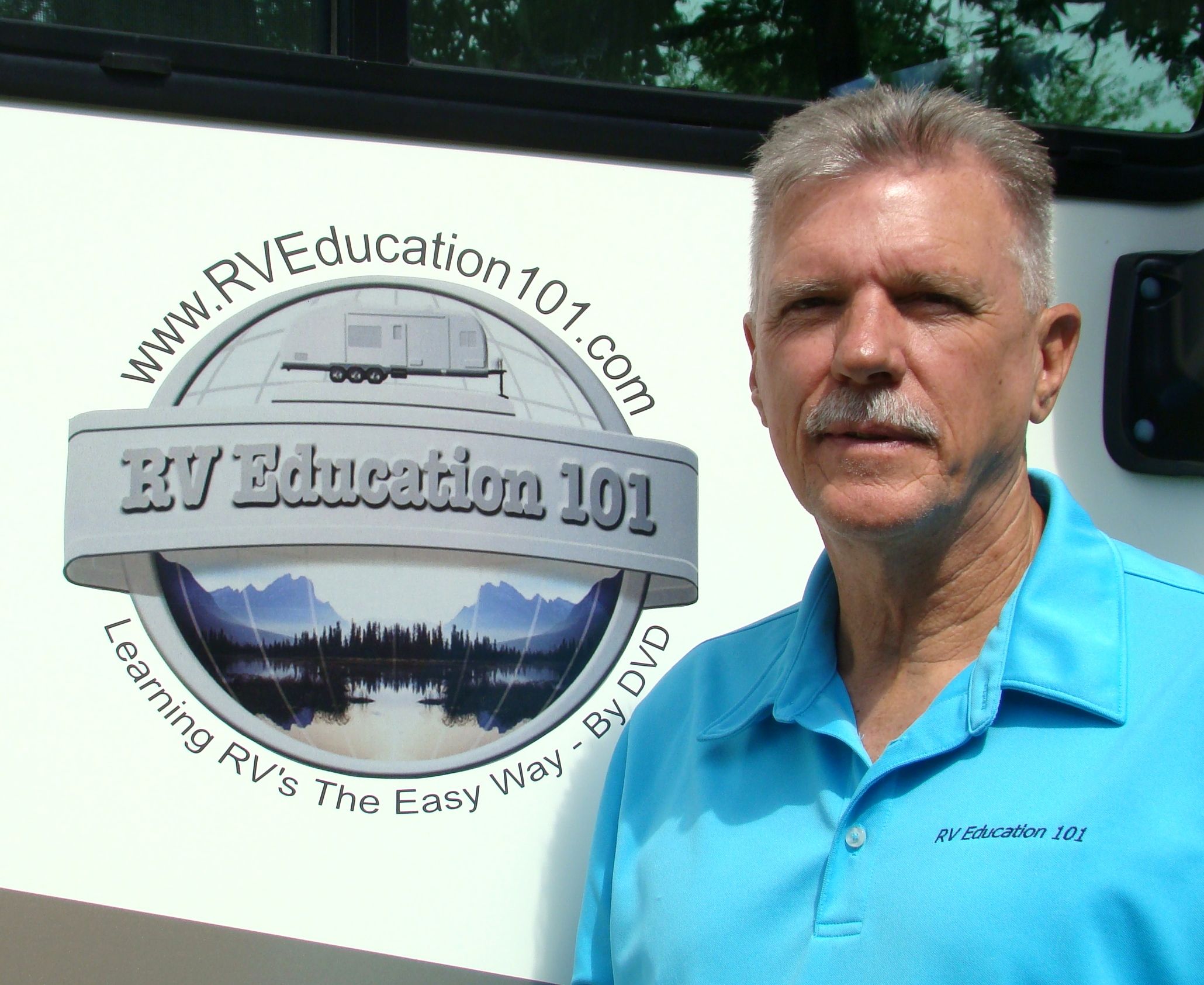
RV Care & Preventive Maintenance RV DIY® Online Video Training
Step-by-step instructions on how to inspect and identify small problems with your RV, before they become large expensive problems
Watch Promo
DISCOVER-LEARN-ENJOY
RV Care & Preventive Maintenance Video Training Program
This RV 101 video training program can be viewed from computers, tablets, and smartphones. The course material includes full-feature videos, (with some downloadable segments), written text, short bonus video segments, related articles written by your instructor Mark Polk, helpful tips & tricks, fun RV University play & learn crossword puzzles and quizzes to help you retain the information.
Purchasing an RV is a major investment, similar to your automobile or home. To protect your investment, and get many years of reliable service and use from your RV there are certain measures you need to take. There are three types of maintenance for your RV. Preventive maintenance, which is the purpose of this video course, scheduled maintenance and emergency maintenance.
Preventive Maintenance is maintenance you perform on your RV before a problem exists. These checks are designed to prevent or identify potential problems that could lead to mechanical breakdown, malfunction or failure of a component or system on your RV. Preventive Maintenance consists of cleaning, inspecting, lubricating, adjusting and servicing your RV.
If you catch a problem early, you can make the necessary repairs before it turns into a more expensive repair job. For example, if you don't check the tire inflation pressure prior to leaving on a trip (preventive maintenance) an under-inflated tire can heat up and fail, leaving you stranded alongside the interstate, which is now emergency maintenance.
The purpose of this video course is to give you some easy to follow preventive maintenance checks that you can perform on your RV. These checks can help towards enjoying trouble-free operation of your RV. They do not supersede any scheduled maintenance recommended by the chassis and RV manufacturer, and it is imperative that those schedules and recommended intervals are followed. Some of the scheduled maintenance for your RV must be performed by an RV dealer, chassis manufacturer or authorized service center.
Important Note: You can be injured working on the systems of an RV and a motor vehicle. Only perform the work you feel comfortable with, and that you have the proper equipment, tools and knowledge necessary to do the job. If you have any doubt about performing a certain check or procedure have it done by an authorized RV service center.
The RV Care & Preventive Maintenance video training program includes:
Chapter 1 - Interior of the RV
Chapter 2 - Exterior of the RV
Chapter 3 - RV Appliances
Chapter 4 - LP Gas System Checks
Chapter 5 - RV Water & Waste Water System Checks
Chapter 6 - RV Electrical System Checks
Chapter 7 - RV Chassis, Frame, & RV Tire Checks
Enjoy the Course
Your Instructor

Chief Warrant Officer Three Mark J. Polk was awarded a first place US Army maintenance award from General Shelton.
Mark started RV Education 101 in 1999
History past and present:
- Writer/ Columnist/ Contributor for numerous RV consumer & RV trade newsletters and magazines (RVBusiness, FMCA, RV News, RV Companion, Pop-Up Times, RV Free Wheelin’, Trail Blazer, RV Executive Today and RV Magazine,)
- RV Technical Writer for several newsletters and blogs, (Go RVing blog, Family Motor Coach Association (FMCA), RV Net Expert Blog, RV University This Week, Camping World e-newsletter, RV Travel, RV Trader, Rollin On TV website, HGTV and Geiko Insurance blog)
- Script and host television segments for Rollin On TV
- Scripted & hosted television segment titled RV Savvy for four seasons (52 episodes) with RVTV on The Outdoor Channel and three Canadian TV Channels.
Course Curriculum
-
StartExterior of the RV - Written Text & Feature Video Presentations (11:15)
-
StartBonus Video - How to Repair & Prevent Surface Rust (4:42)
-
StartBonus Video - How To Prepare the RV's Exterior for Storage (4:32)
-
StartArticle - Cleaning the RV Roof - The Basics
-
StartRV Play & Learn Crossword Puzzle - RV Roof Care & Maintenance 101
-
StartQuiz - Exterior of RV
